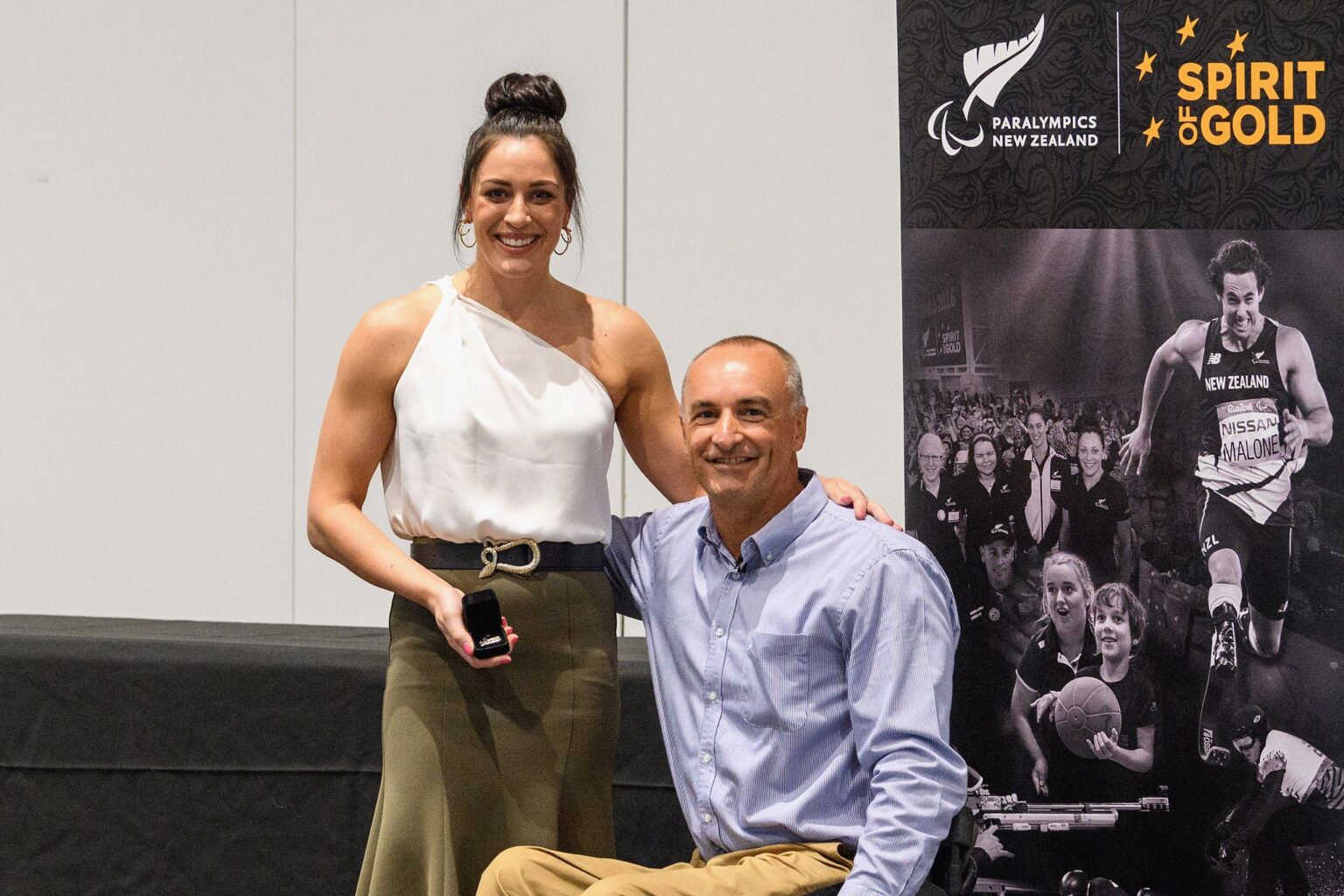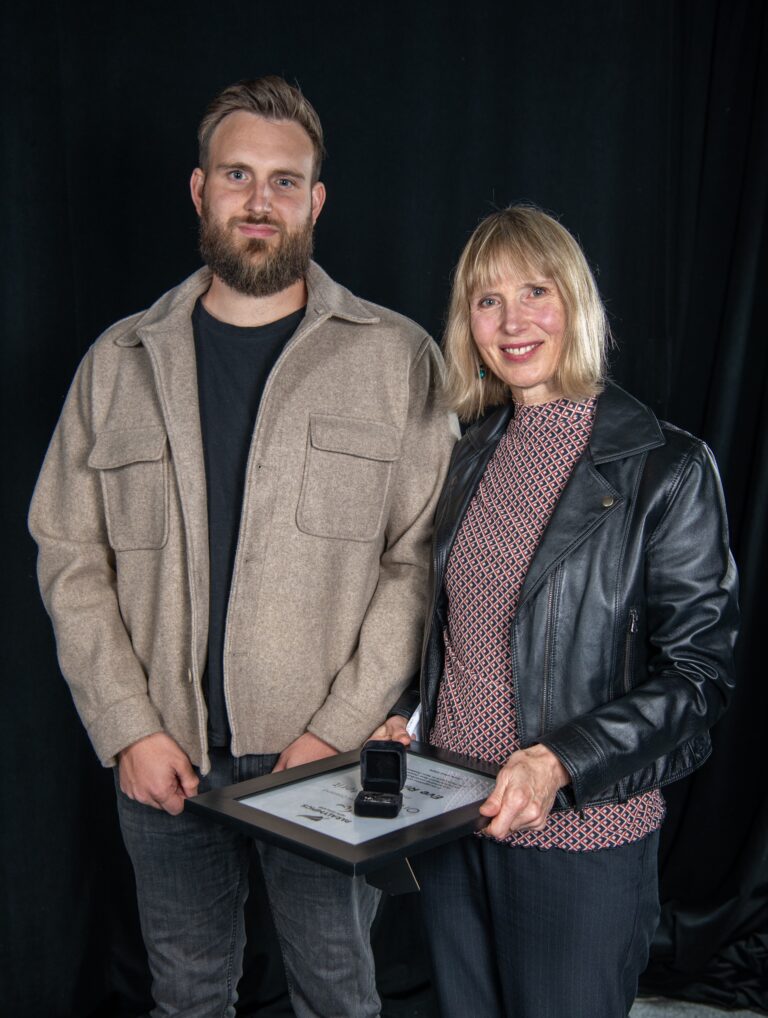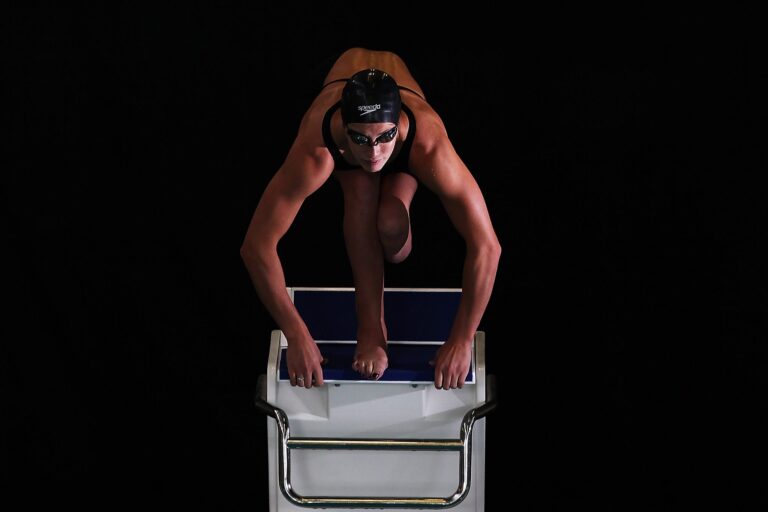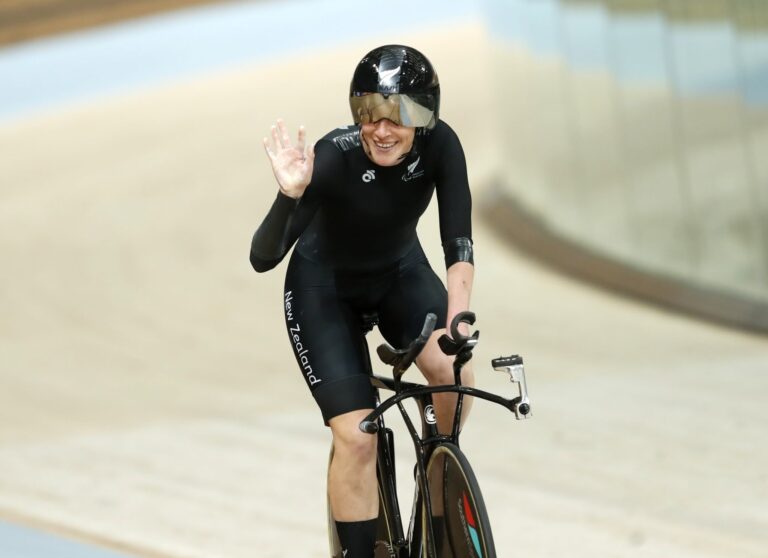This evening Paralympics New Zealand (PNZ) marked the 12th and final community event as part of The Celebration Project, where with just under six months to go until the Tokyo 2020 Paralympic Games, the achievements of New Zealand’s 209 Paralympians since Tel Aviv 1968 have been officially recognised and celebrated.
The Celebration Project finished on a high note in Christchurch, with the largest group of Paralympians at any one event being recognised. 39 New Zealand Paralympians, their families and friends, ParaFed Canterbury and PNZ commercial partners came together at the University of Canterbury to celebrate over 50 years of Paralympic history whilst acknowledging the incredible 209 Paralympians that have represented New Zealand. Since 1968, New Zealand Paralympic Teams have stunned supporters and competing nations with their determination, heart, courage and ultimately, their success. Paralympians have contributed to the New Zealand Paralympic Teams success by representing Kiwis with pride and dignity, bringing home a staggering 221 medals. Through this success they have inspired Kiwis to think differently about disability.
The Paralympians are now part of a group of 160 Paralympians who have now received their official ‘numbered’ Paralympic pin and certificate. Previous Celebration Project events took place in Auckland (x2), Whangarei, Hamilton, Tauranga, New Plymouth, Palmerston North, Queenstown, Wellington, Dunedin and Bonn, Germany from 2019 through to today. The official Paralympic ‘number’ is a unique number that is bestowed only once a Paralympian has competed at their first Paralympic Games. Athletes are then ordered alphabetically within each Paralympic Games.
Fiona Allan ONZM (Chief Executive, PNZ) said: “We were privileged to have 39 Paralympians along with their families, friends and supporters, representing New Zealand Paralympic Teams from Tel Aviv 1968 through to the most recent Rio 2016 Paralympic Games. Tonight has been a wonderful celebration of our incredible legacy as we celebrated our early pioneering Paralympians such as Paralympian #4 Graham Condon, Paralympian #5 Rex Fattorini and Paralympian #15 John Stott, through to Paralympian #166 Sophie Pascoe, New Zealand’s most decorated Paralympian with an incredible 15 Paralympic medals.“
Allan continued: “It has been so special to celebrate with such a large number of Paralympians and guests this evening at our final Celebration Project community event. This project has been hugely successful in not only officially numbering our Paralympians, but in telling the incredible stories of Paralympians that for some had been previously unknown to their local communities. We look forward to welcoming new Paralympians to the Paralympic family as we look ahead towards Tokyo 2020 and Beijing 2022 Paralympic Games.“
Alongside the Paralympians, guests celebrated the presentation of the Paralympics New Zealand Order of Merit to Ken Sowden MNZM and Paralympian #54 Collin Willis. The PNZ Order of Merit was established in 2001 and recognises individuals who have given outstanding service to PNZ or Para sport. This is an exclusive group of 29 members.
Sowden’s contributions to the Para sport sector range from grass roots to high performance. His efforts have been immense and varied and include his contribution at a regional, national and international level of Para sport through his involvement in ParaFed Canterbury, various national Para sport events, NZ Paralympic Teams and Oceania and international Wheelchair rugby t A highlight is undoubtably Sowden’s commitment and contribution to the success of New Zealand Paralympic Teams across 5 Paralympic Games. This began at the Atlanta 1996 Paralympic Games where he provided logistics support to the medal winning Wheel Black – Wheelchair rugby team. His involvement continued into Sydney 2000, before his official appointment as Operations Manager for Athens 2004, Beijing 2008 and London 2012. Sowden worked tirelessly behind the scenes to organise logistics, create the NZ village experience and ensure Paralympians entered the Games environment with ease allowing them to focus on performance.
Willis has been involved in competing in Shooting Para sport for 23 years, including 5 Paralympic Games. He achieved a 7th placing in both Atlanta and Sydney in his event, 10m air rifle alongside a 2nd placing in the 2002 World Championships. Following his retirement from competing, Willis became involved in running the ParaFed Canterbury Shooting Club for a number of years. He also provided support for many disabled people living in the Canterbury region. Willis was awarded the PNZ Order of Merit in 2007. He also received the NZ Order of Merit for services to disabled sport in the same year.
Allan commented: “It was a great honour this evening to officially present Ken Sowden and Colin Willis with the PNZ Order of Merit. Tonight we recognised Ken and Colin’s commitment to Para sport and the Paralympic Movement“.
Celebrated tonight and receiving his pin was Graham Condon QSM (Paralympian #4). Condon was a highly successful Para athlete whilst also instrumental in advancing the cause of Para sport in New Zealand. As the only Kiwi to have appeared at six successive Paralympic Games, Grahams’ international career straddled four decades. Graham went on to play a key role in the development of Para sport in a series of key administrative positions including as a PNZ Board member. His wife Kathy accepted Graham’s pin in his honour and explained it best: “Graham’s legacy was helping disability sport become more recognised, firstly as an athlete and later as an administrator. He would have been very proud of the progress Para sport has made in more recent times“.
Paralympian #115 Steve Bayley, is a below-the-knee amputee as the result of a car accident that opened new doors for the always positive recreational skier. The morning after his amputation Steve woke and announced: “I can go to the Paralympics now!“ thus embarking on an impressive career in Para alpine skiing. Within four years he would be winning medals including the Giant Slalom bronze at Nagano 1998 and two more bronzes (Downhill and Super G) alongside a gold for the Giant Slalom at Salt Lake City 2002. The excitement and atmosphere experienced at the Paralympic Games is something Steve will never forget: “Despite having been to a few World Cups by then, to have 30,000 people waving and cheering with flags was quite an amazing, eye-opening moment.“
The Christchurch event concludes The Celebration Project, with 11 events staged all around the country along with one ceremony in Bonn, Germany, home of the International Paralympic Committee. The project has been made possible thanks to funding and support from the New Zealand Lottery Grants Board, New Zealand Chambers of Commerce and Toyota New Zealand.
The event on Saturday evening followed a two-day Para Sport Pop Up event in Christchurch. These innovative events have been travelling around New Zealand alongside the Celebration Project community events in the lead up to the Tokyo 2020 Paralympics, telling the story of New Zealand’s 50 plus year Paralympic history, increasing awareness of Para sport and positively influencing community perceptions of disabled people.
Celebrated tonight and receiving his pin was Graham Condon QSM (Paralympian #4). Condon was a highly successful Para athlete whilst also instrumental in advancing the cause of Para sport in New Zealand. As the only Kiwi to have appeared at six successive Paralympic Games, Grahams’ international career straddled four decades. Graham went on to play a key role in the development of Para sport in a series of key administrative positions including as a PNZ Board member. His wife Kathy accepted Graham’s pin in his honour and explained it best: “Graham’s legacy was helping disability sport become more recognised, firstly as an athlete and later as an administrator. He would have been very proud of the progress Para sport has made in more recent times“.
Paralympian #115 Steve Bayley, is a below-the-knee amputee as the result of a car accident that opened new doors for the always positive recreational skier. The morning after his amputation Steve woke and announced: “I can go to the Paralympics now!“ thus embarking on an impressive career in Para alpine skiing. Within four years he would be winning medals including the Giant Slalom bronze at Nagano 1998 and two more bronzes (Downhill and Super G) alongside a gold for the Giant Slalom at Salt Lake City 2002. The excitement and atmosphere experienced at the Paralympic Games is something Steve will never forget: “Despite having been to a few World Cups by then, to have 30,000 people waving and cheering with flags was quite an amazing, eye-opening moment.“
Paralympian #4 Graham Condon, QSM (deceased)
Graham made his Paralympic debut at the Tel Aviv 1968 Paralympic Games. He won his first Paralympic medal 4 years later at the Heidelberg 1972 Paralympic Games: a gold in discus. In total, Graham won 7 Paralympic medals. He is the only New Zealand Paralympian who has competed at 6 consecutive Paralympic Games, from Tel Aviv 1968 to Seoul 1988. Graham was a PNZ Board member and as a trailblazer he was known to have paved the way for so many Paralympians here in Christchurch. In 2001 both Graham and his wife Kathy Condon, received the Paralympics New Zealand Order of Merit for their outstanding services to Paralympic sport.
Paralympian #5 Rex Fattorini (deceased)
Rex was born in Reefton. He made his Paralympic debut in the Tel Aviv 1968 Paralympic Games as part of the first ever New Zealand Paralympic Team. He competed in Para athletics throwing the javelin and in Para weightlifting in the Featherweight class.
Paralympian #15 John Stott, QSO (deceased)
John grew up in Invercargill and became a paraplegic after an accident in 1964. Only 4 years later, John was selected to compete at the Tel Aviv 1968 Paralympic Games in Para table tennis, Para swimming and Para bowls. He was one of the 6 people who founded the Disabled Persons Assembly. John became their representative on Rehabilitation International from 1986 – 1997 and was the world President from 1992 to 1996. John passed away in 1997.
Paralympian #26 Doug Moore QSM (deceased)
Born in 1925, Doug took up Para sport following a truck accident which paralysed him from the waist down when he was 40. Doug made his Paralympic debut in Canada at the Toronto 1976 Paralympic Games and competed in Para athletics and Para table tennis. His best result at those Games was in the Men’s Javelin where he finished in 6th place. Doug was awarded the Queen’s Service Medal in 1978 for Services to the Community.
Paralympian #27 Peter Baddeley
Peter is a below the elbow amputee. He is passionate about the outdoors, sailing and particularly skiing. He represented New Zealand at the first ever Paralympic Winter Games where the New Zealand Paralympic Team competed in Geilo in 1980. He competed in Para alpine skiing, in the giant slalom and slalom events.
Paralympian #36 Chris Moran (deceased)
Chris was injured and became a tetraplegic. He made his Paralympic debut at the Arnhem 1980 Paralympic Games in Holland in Para athletics and Para swimming. Chris narrowly missed a place on the podium when he achieved fourth place in the discus. Chris passed away in 2017.
Paralympian #39 Dave Tarrant (deceased)
Dave lived in Christchurch when he had his accident at the age of 31, falling from a tree. This fall left him a paraplegic only one week before the birth of his son. A few years later, Dave started Shooting Para sport. He had set up a shooting range across his living room with the target hooked into the stairs. Dave represented New Zealand at the Arnhem 1980 Paralympic Games and won a bronze medal in the Mixed Air Pistol. Dave passed away in 2018.
Paralympian #40 Ed Bickerstaff
Born in Howick with a right arm deficiency, Ed is a New Zealand Para alpine skier. Ed competed at 4 consecutive Paralympic Winter Games: Innsbruck 1984, Innsbruck 1988, Albertville 1992 and Lillehammer 1994. This is an historical achievement, only equalled by winter Paralympian #158 Adam Hall.
Ed now lives in Otago and is still very active, crossing New Zealand on his bike.
Paralympian #3 Patricia Craig
Trish was part of New Zealand Paralympic Winter Games Team at Innsbruck 1984. She took part in the Alpine Combination, Downhill, Giant Slalom and Slalom events. Her best achievement was in the Combination where she secured 7th place.
Paralympian #44 Mark Edwards
Mark Edwards made his Paralympic debut at the Innsbruck 1984 Paralympic Winter Games. Mark won a bronze medal in the Downhill event and also competed in the Giant Slalom and Slalom events. Mark was selected to compete at the Innsbruck 1988 Paralympic Games but did not attend due to an injury. Mark has spina bifida resulting in a weakness in both his lower limbs.
Paralympian #49 Roly Crichton ONZM
Roly has had an amazing 40 years of service and dedication not only to Paralympics New Zealand but to Para sport generally. As a Paralympian, Roly competed at the Stoke Mandeville 1984 and Seoul 1988 Paralympic Games winning a total of 6 medals: 1 gold, 3 silver and 2 bronze in Para swimming. As a coach, his long-standing partnership with Sophie Pascoe from the age of 8 has seen her win 15 Paralympic medals across 3 Paralympic Games and become New Zealand’s most decorated Paralympian. Roly was honoured as an Officer of the New Zealand Order of Merit in the 2018 New Year’s Honours.
Paralympian #52 Michael O’Callaghan
Michael was part of the New Zealand Paralympic Team of 13 Kiwi Paralympians who competed at the New York and Stoke Mandeville 1984 Paralympic Games. Michael was very successful in Para athletics winning 2 silver medals in the 1500m and the 5000m.
Paralympian #53 Alison Smith
Alison is the first and only woman Shooting Para sport athlete to date to have represented New Zealand at a Paralympic Games. Alison represented her country at the New York & Stoke Mandeville 1984 Paralympic Games. She won a bronze medal in the Women’s Air Rifle. In 1986 Alison competed at the FESPIC Games in Indonesia where she won an impressive total of 4 gold medals.
Paralympian #54 Colin Willis MNZM
Colin has spina bifida and has competed in five consecutive Paralympic Games in 1984, 1992, 1996, 2000 and 2004. This is second to only Graham Condon who has competed in 6 consecutive Games. Colin placed 7th at both the Atlanta 1996 and Sydney 2000 Paralympic Games in the 10 metre air rifle. Colin was involved in running the ParaFed Canterbury Shooting Club. In addition to his PNZ Order of Merit in 2007, Colin also received the New Zealand Order of Merit in the same year.
Paralympian #57 Grant Buchanan
Grant competed at the Seoul 1988 Paralympic Games, along with 16 other New Zealand Paralympians who collectively won 17 medals. Grant is a tetraplegic and competed in Para athletics, winning 2 bronze medals in discus and shot put. Grant lives in Christchurch and works at the University of Canterbury as a lecturer and teacher.
Paralympian #63 Stelios Meimaris
Stelios made his Paralympic debut at the Seoul 1988 Paralympic Games. Stelios competed in Para athletics in the 200m and the Slalom track race. Originally from Wanganui, Stelios and his family now live in Christchurch.
Paralympian #64 David Mills
David competed at the Seoul 1988 Paralympic Games. David competed in Para athletics and won the bronze medal in the Men’s Marathon visually impaired class. Humble and resilient, David’s son says “Growing up with a blind dad had its challenges. I guess I am a personal taxi some of the time, but Dad has been blind for 40 years. He has never complained about his condition.“ Today, David is a PE teacher and lives in Timaru.
Paralympian #74 Glenn Barnes
Proudly from Green Island in Dunedin, Otago, Glenn became a paraplegic after a vehicle accident and then found Wheelchair tennis. Glenn was selected to be part of the New Zealand Paralympic Team at the Barcelona 1992 and Athens 2004 Paralympic Games. He also contributed to qualify New Zealand in Wheelchair tennis at the Sydney 2000 Paralympic Games. Glenn was recently awarded wheelchair player of the year in 2020 by NZ Tennis.
Paralympian #79 Belinda Keogan (nee Honey)
Belinda represented New Zealand at both the Barcelona 1992 and Atlanta 1996 Paralympic Games. She competed in Para swimming and was 1 of 7 Para swimmers that collectively won a staggering 12 medals in Atlanta 1996.
Paralympian #83 John Sorensen
John had an accident in 1980 in Australia. A rock-fall in an underground coal mine left him as a paraplegic. In 1992, John was named to be part of the team of 13 Paralympians who competed at the Barcelona 1992 Paralympic Games in Spain. He competed in Wheelchair tennis and went to the 8th final in the double with fellow Paralympian Glenn Barnes and the 16th final in the single event.
Paralympian #87 Hayden Brown
Hayden made his Paralympic debut at the Atlanta 1996 Paralympic Games in Para swimming. He made his second Paralympic appearance in Sydney 2000. His impressive performance in the heats led him to two finals in the 100m Butterfly and the 200m Medley. Hayden was the first recipient of the Parafed Canterbury Gallagher Brothers Junior Sportsperson of the Year award. He won it for three consecutive years.
Paralympian #102 Andrew May
Andrew May has been sailing for longer than he can remember. He won the Phoenix class National Championships the year before a car accident at the age of 17 that left him as a paraplegic. Andrew has now sailed in three Paralympic Games: Atlanta 1996 in the Sonar and then Sydney 2000 Paralympic Games in the single-handed 2.4mR where he achieved 6th place in both events and finally at the Rio 2016 Paralympic Games in the 3-person keelboat placing an incredible fourth.
Paralympian #110 Marilyn Stratford
Marilyn represented New Zealand in Wheelchair tennis at the Atlanta 1996 Paralympic Games. She continued to represent New Zealand on an international level winning the Famac Open Catalonia in 1998 and later the New Zealand Open back to back in 2000 and 2001.
Paralympian #111 Sholto Taylor
As a 20-year-old Sholto lost the use of his legs after a car accident. Four-time Paralympian Sholto was part of the highly successful Wheel Blacks Wheelchair rugby team who won bronze at Atlanta 1996 and Sydney 2000, and gold at Athens 2004. Sholto also competed at the Beijing 2008 Paralympic Games where he had the honour of being NZ flag bearer. The Canterbury Chargers captain is now helping others in a similar situation at the Burwood Spinal Unit in Christchurch.
Paralympian #114 Rachael Henderson (nee Battersby)
Rachael fell from a car at the age of four, resulting in paralysis of her left arm. In 1997, she made the decision to have the arm amputated. She experienced her Paralympic debut at the Nagano 1998 Winter Games. She also competed at the Salt Lake City 2002 Paralympic Winter Games. At only 23 years of age, Rachael won her first Paralympic medals, taking home three gold medals in the W Slalom, Giant Slalom and Downhill.
Paralympian #115 Steven Bayley
Steven lost his leg in 1994, after a car accident, which left his right leg amputated below the knee. Steve also made his Paralympic debut at the Nagano 1998 Paralympic Winter Games and took bronze in the Giant Slalom. 4 years later, Steven competed at the 2002 Paralympic Games in Salt Lake City winning gold in the Giant Slalom, and 2 bronzes in the Super-G and Downhill.
Paralympian #116 Sue Gardiner
Sue Gardiner made her Paralympic debut at the Nagano 1998 Paralympic Winter Games, alongside Steven and Rachael. Sue competed in the visually impaired class in multiple events which included Slalom, Giant Slalom, Downhill and the Super- G. Her husband Dave – here with us tonight – was her guide on the slopes. Sue works today as a vision rehabilitation specialist.
Paralympian #119 Paul Britnell
Paul started Wheelchair tennis at the age of 24 and represented New Zealand for many years. He competed at an international level with impressive performances on tour at the French Open, Malaysian Open and Japan Open. Paul was part of the Sydney 2000 Paralympic squad where he made his Paralympic debut and finished in the 8th final of the singles event.
Paralympian #120 David Collie
Dave made his Paralympic debut at the Sydney 2000 Paralympic Games where he represented New Zealand running the marathon. He was part of a successful team of 9 Para athletes. Dave is still passionate about running and currently holds an impressive collection of New Zealand records in his classification T45: the 400m, 800m, 1500m, 5k, 10k, half marathon and marathon.
Paralympian #122 Wayne Fleming
At the age of 18, a car accident left Wayne paraplegic. The right handed player was involved in the creation of Wheelchair Tennis NZ in 1979 at the tennis courts in Hagley Park. Wayne was part of the New Zealand Paralympic Team competing at Sydney 2000 where he finished in the 32nd of the Men’s singles final. Wayne also competed in the doubles with Paralympian Paul Britnell. The New Zealand pair lost against Poland in the 8th final. Wayne has also been working as an architectural designer for over 40 years.
Paralympian #130 Hadleigh Pierson
Hadleigh is a two time Paralympian. Hadleigh represented New Zealand at the Sydney 2000 and Athens 2004 Paralympic Games in Para swimming. Hadleigh was a finalist in the 400m freestyle at both of his Paralympic Games appearances. For the past 17 years, Hadleigh has worked for both ParaFed Canterbury and Paralympics New Zealand supporting future Paralympians.
Paralympian #135 Matthew Slade
Sprinter Matthew Slade was a household name in Canterbury Athletics during the early 2000’s. He represented New Zealand at three Paralympic Games: Sydney 2000, Athens 2004 and Beijing 2008. In Sydney, Matt won silver in the 200 metres and bronze in the 100 metres.
Four years later in Athens, he achieved his ultimate goal and won gold in the final of the 200 metres. Matt is living in Christchurch and works as the Finance Manager for the Cerebral Palsy Society of New Zealand.
Paralympian #149 Jeremy Morriss
Jeremy made his Paralympic debut at the Athens 2004 Paralympic Games, at the age of 18, where he returned with the first and currently only Paralympic medal in the sport of Boccia for New Zealand. The team of four won a silver medal after beating world champions Spain. Two years later, Jeremy was part of the NZ Boccia team that won gold at the World Championship in Rio, as a qualifying event towards Beijing 2008, which Jeremy also competed in. Having cerebral palsy, Jeremy was happy to find a sport that could really challenge him and he has been actively involved in Boccia since the age of 10.
Paralympian #159 Kerri Bonner
Kerri was introduced to Boccia in 2007 when she attended her first world cup in Canada. A few months later, she was selected to represent New Zealand at the Beijing 2008 Paralympic Games. After graduating from psychology at the University of Canterbury, Kerry now works for CCS Disability Action as a Service Coordinator. She staunchly believes that disabled people can and do live great lives, and she is privileged to be in roles where she can support people along their journey.
Paralympian number 161 Annaliisa Farrell
Annaliisa made her Paralympic debut at the Beijing 2008 Paralympic Games as a sighted pilot in Para cycling. Annaliisa and tandem partner Jayne Parsons claimed bronze in the Women’s road time trial in Beijing. She said her decision to be the sighted pilot for Parsons was not just about a desire to give something back to the sport, but being able to help another athlete achieve their goals is what motivated her the most.
Paralympian #166 Sophie Pascoe MNZM
Sophie is New Zealand’s most decorated Paralympian. She has been instrumental in increasing awareness of Paralympic sport in New Zealand and is a hugely influential role model both in New Zealand and internationally. Sophie has been an inspiration to many young people throughout the world, and yet places heavy emphasis on the work she does in her local community. Sophie has competed at 3 Paralympic Games and has won 15 Paralympic medals, including 9 gold medals. This week Sophie won the Para athlete of the Decade Award at the Halbergs.
Paralympian #177 Anthea Gunner
Anthea became a paraplegic after a paddock accident in 2006. She says that horses have kept her positive, and that without the friendship, understanding and challenges they provide, her life post accident would be very different. Anthea represented New Zealand at the London 2012 Paralympic Games.
Paralympian #198 Scott Martlew
In 2011, just a short 10 months after his leg was amputated in order to save his life, Scott competed in the 4-man Surf canoe at the New Zealand Surf Lifesaving Nationals where he and his crew won a gold and silver medal. A few years later, both Scott and the sport of Para canoe made their Paralympic debut at the Rio 2016 Paralympic Games. With an impressive performance in the 200m, his results boosted his world ranking to 8th position.
Paralympian #199 Hamish McLean
Hamish is a Para swimmer from Wanaka. He was a late call-up to the New Zealand Paralympic Team for Rio 2016 following the allocation of an additional male slot. He took full advantage of his first ever Paralympic Games, setting an Oceania record in the Paralympic final of the 400m Freestyle and finishing 7th in the event. Hamish is now studying engineering at Canterbury University.






























